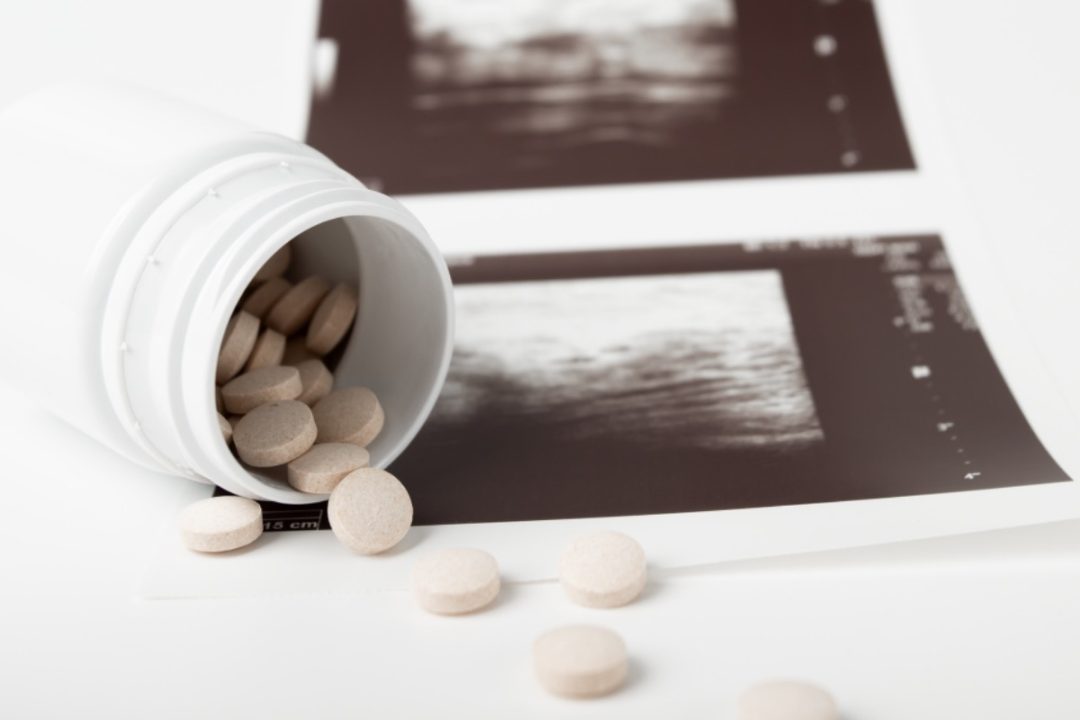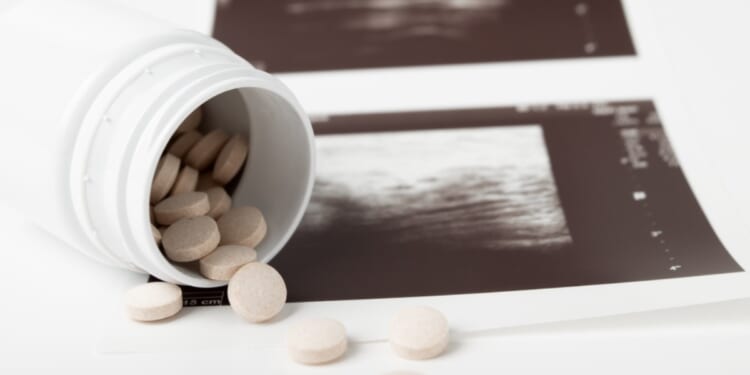
Chemical abortions are now easier to obtain than ever, thanks to a recent ruling by Trump’s U.S. Food and Drug Administration (FDA).
The agency approved a new generic version of mifepristone, popularly known as RU-486 or the “abortion pill.” It’s produced by Virginia-based Evita Solutions, LLC, and is the second generic version of the drug allowed in the United States.
Pro-life groups and some GOP leaders have condemned the approval as a “betrayal” on the part of the Trump administration. “FDA had promised to do a top-to-bottom safety review of the chemical abortion drug, but instead they’ve just greenlighted new versions of it for distribution,” tweeted Missouri Republican Josh Hawley.
Health and Human Services Secretary Robert F. Kennedy, Jr. answered on social media: “@US_FDA only approved a second generic mifepristone tablet because federal law requires approval when an application proves the generic is identical to the brand name.” But he vowed that the agency is in the process of reviewing health risks of the drug — a smokescreen promise made by the Trump administration considering plentiful and damning research already available, as we’ll see below.
Documented History of Harm
Between half and two-thirds of abortions in the United States are medication-induced, according to the pro-abortion Guttmacher Institute, and RU-486 is the most commonly used product in chemical abortions.
In a wildly contentious ruling, FDA first approved the drug in the year 2000. Opponents argued that the agency had not sufficiently monitored deaths and adverse events associated with mifepristone.
Six years later, a government reform subcommittee investigated an alarming number of deaths and severe adverse effects in otherwise healthy women. Members noted that post-marketing safety monitoring by the FDA was extremely poor.
“It is very clear that there is a serious problem with RU-486,” said then-U.S. Representative Mark Souder (R-Ind.), who chaired the subcommittee. “In failing to address this problem by disguising it, ignoring it, minimizing it, or causing confusion is a shameful failure for anyone with the ability and desire to protect women from needless harm.”
Perhaps Secretary Kennedy could save time and taxpayer dollars by reviewing the 2006 subcommittee findings. He might also consider that in the previous year — 2005 — the Annals of Pharmacotherapy sounded the mifepristone alarm loud and clear, noting dire “allergic and fatal septic reactions” associated with the product. Researchers also criticized the FDA’s adverse-event reporting system as inadequate and called for a fetal registry “to track birth defects in mifepristone survivors.” That has never been established.
The same journal reported in 2006 that mifepristone can cause rare bacterial infections, and it again accused the FDA of “gross deficiency” in adverse-event monitoring.
Perils Ignored
Nevertheless, after the Supreme Court overturned Roe v. Wade in 2024, President Joe Biden’s FDA responded by removing the rule that a woman must see a physician in person to receive the drug. As a result, Planned Parenthood brags that women “can get the abortion pill from a doctor, nurse, [or] health clinic,” and may be able to get it “for free or low cost.” Businesses such as Hey Jane offer telehealth visits in which women may obtain a prescription from a physician and receive abortion pills by mail.
Thus does the federal government circumvent state laws intended to protect women and their unborn babies. By making the drug so easy to obtain, the FDA’s reckless approvals also aid and abet human traffickers and abusers, who can force their victims to undergo unwanted abortions. And no matter the narrative, the abortion pill is anything but “safe and effective” — its purpose is to kill.
Mifepristone starves the developing baby to death, and misoprostol — a companion drug — causes contractions so the mother delivers her dead baby a short time later. Sometimes, the baby is still alive when she delivers, and the mother is forced to watch her child endure a slow, painful death.
Mimicking Ectopic Pregnancy
However, both drugs are life-threatening not only to the baby, but to the mother as well, especially when self-administered outside of the care of an attending physician.
In fact, mifepristone carries a “black box” warning — the strongest measure in the FDA arsenal short of pulling a drug from the market. The warning notes serious and sometimes fatal infections and bleeding in mothers. Misoprostol adds to the risks, as it can also cause uterine rupture and dangerous bleeding.
Moreover, “symptoms of a ruptured ectopic pregnancy are exactly the same as the symptoms of a medication abortion,” said Dr. Christina Francis, CEO of the American Association of Pro-Life Obstetricians and Gynecologists. In an interview with The New American, she explained that ectopic pregnancy, which occurs in one out of every 50 pregnancies, is a life-threatening complication in which the fertilized egg implants and begins to grow outside the uterus. This condition is always fatal for the baby, and can be for the mom if not caught in time. In fact, it is a leading cause of maternal mortality in the first trimester.
Women who self-induce medication abortion can easily mistake their abdominal pain and vaginal bleeding — symptoms of a ruptured ectopic pregnancy — for the expected side effects of the abortion pill. “If they don’t seek help immediately, they could die,” warned Francis.
“Regardless of where you stand on the issue of abortion, you should be opposed to women receiving these medications without an in-person visit,” she pointed out. Indeed, we should all oppose any woman or baby receiving such poison.











